Grease is one of the biggest enemies when it comes to maintaining your kitchen cabinets. It can accumulate on the surface and over time, leave a greasy film that is not only unsightly but also difficult to clean. Not to mention, grease can attract dust and dirt which makes cleaning even more challenging. If left untreated, this build-up of grease can damage your cabinets and cause them to deteriorate faster. Therefore, it is important to take preventative measures on how to protect kitchen cabinets from grease.
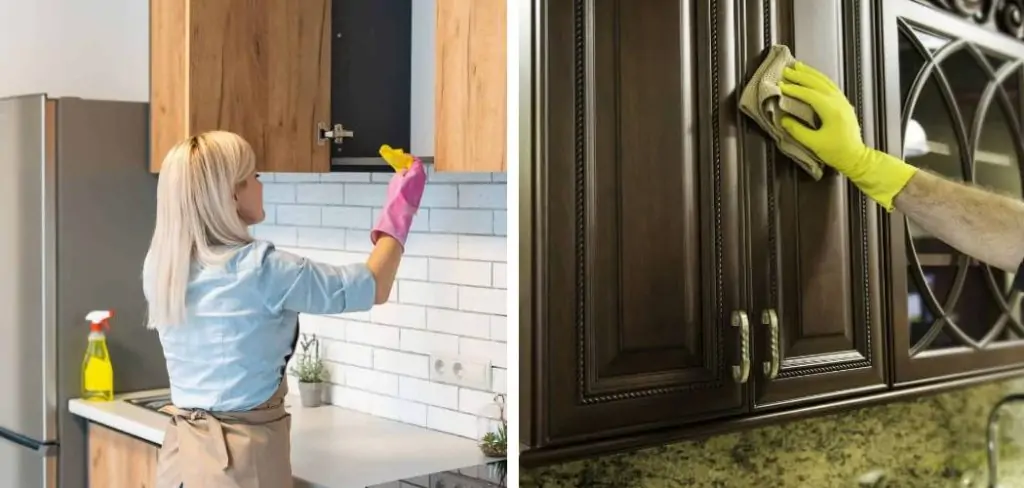
Why is grease a problem for kitchen cabinets?
As mentioned earlier, grease can accumulate on the surface of your kitchen cabinets and create a greasy film. This film not only looks unpleasant but also attracts dust and dirt which can make it even harder to clean. Grease can also penetrate into the wood or laminate material of your cabinets, causing them to deteriorate over time. In addition, it can also lead to discoloration and stains on the surface of your cabinets.
This is particularly problematic for lighter colored cabinets where grease spots and stains are more visible, detracting from the overall appearance of your kitchen. Regular exposure to cooking oils, steam, and food splatters can exacerbate this issue, making it imperative to establish a rigorous cleaning routine. Furthermore, the integrity of the cabinet’s finish can be compromised over time, leading to costly repairs or replacements. To maintain the aesthetic and functionality of your kitchen, addressing grease accumulation promptly and effectively is crucial.
Tips for How to Protect Kitchen Cabinets From Grease
1. Regular Cleaning
The first step in protecting your kitchen cabinets from grease is regular cleaning. This involves wiping down the surface of your cabinets at least once or twice a week with a mild detergent and warm water. Be sure to use a soft cloth or sponge to avoid scratching the surface of your cabinets. Pay extra attention to areas near the stove and oven, as these are where most grease and oil splatters occur.
2. Use Protective Coatings
Another way to protect your kitchen cabinets from grease is by using protective coatings. These can come in the form of varnish, lacquer, or wax. These coatings create a barrier on the surface of your cabinets and make it easier to wipe away any grease that may come in contact with them.
3. Install Range Hoods
Range hoods are an essential tool in keeping your kitchen cabinets free from grease. They help to extract cooking fumes, steam, and oils from the air, preventing them from settling on your cabinets. Make sure to clean and maintain your range hood regularly for optimal effectiveness.
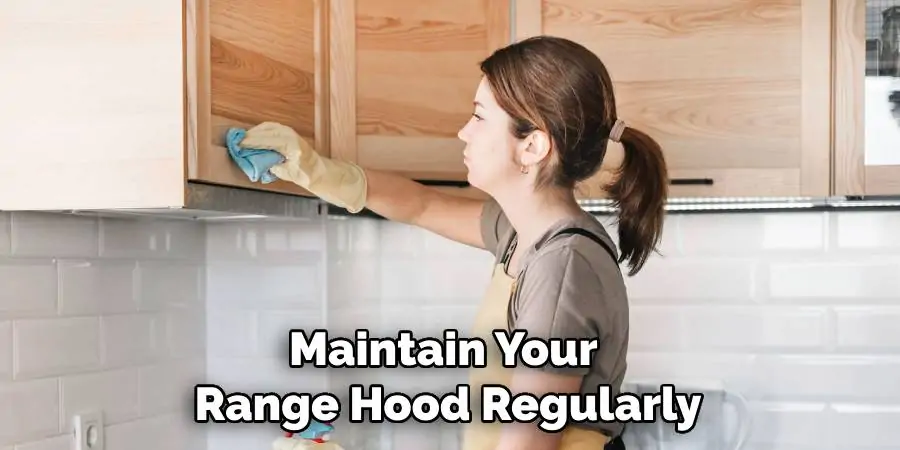
4. Keep a Grease Splatter Screen
Cooking can be messy, especially when it comes to frying foods. To prevent grease splatters from reaching your cabinets, invest in a grease splatter screen. This simple tool sits on top of your pan or pot and helps to contain any splatters within the cooking vessel.
5. Utilize Baking Soda
Baking soda is a natural cleaning agent that can help remove grease build-up on your kitchen cabinets. Mix a small amount of baking soda with warm water to create a paste, then apply it to the greasy areas of your cabinets. Let it sit for a few minutes before wiping it away with a damp cloth. The baking soda will absorb the grease and leave your cabinets looking clean and shiny.
6. Avoid Harsh Chemicals
While it may be tempting to use strong chemicals to remove tough grease stains, these can actually do more harm than good. Harsh chemicals can strip away the protective coatings on your cabinets, leaving them vulnerable to further damage. Stick to mild detergents or natural cleaning solutions to protect your cabinets.
7. Wipe Down Cabinets After Cooking
After you finish cooking, take a few minutes to wipe down the surrounding areas of your kitchen, including your cabinets. This will help prevent any grease or oil residue from sitting on the surface for extended periods of time and causing damage.
What Are Some Common Causes of Grease Buildup on Kitchen Cabinets?
Aside from cooking, there are a few other common causes of grease buildup on kitchen cabinets. These include:
- Poor ventilation in the kitchen
- Using old or dirty sponges and cloths for cleaning
- Not wiping down cabinets after cooking
- Cooking with high heat and oil splatters
By being aware of these causes, you can take preventative measures to reduce the amount of grease that accumulates on your kitchen cabinets.
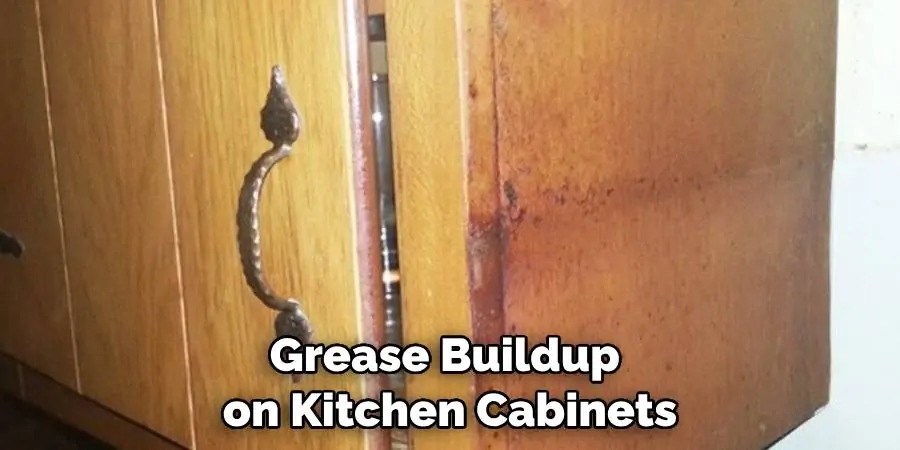
Additional Tips for Maintaining Clean and Grease-Free Kitchen Cabinets
- Regularly clean and maintain your range hood, as it plays a significant role in preventing grease build-up.
- Use a degreaser specifically designed for kitchen cabinets to remove tough stains and build-up.
- Avoid using paper towels when cleaning your cabinets as they can leave behind lint. Instead, opt for microfiber cloths that are more effective at picking up grease and dirt.
- Consider using a natural oil-based cleaner, such as lemon or orange oil, to clean and condition your cabinets. These oils can help protect against future grease build-up.
In conclusion, taking preventative measures and regularly cleaning your kitchen cabinets can go a long way in protecting them from the damaging effects of grease. By following these tips and staying vigilant in maintaining clean cabinets, you can keep them looking new and extend their lifespan. So be sure to add these tips to your cleaning routine for grease-free and well-maintained kitchen cabinets.
Things to Remember
- Grease can accumulate on the surface of your kitchen cabinets, making them unsightly and difficult to clean.
- Regular cleaning, using protective coatings, installing range hoods, and utilizing baking soda are effective ways to protect your cabinets from grease build-up.
- Poor ventilation, dirty cleaning tools, and cooking with high heat can contribute to grease build-up on cabinets.
- Maintaining clean cabinets not only keeps them looking new but also extends their lifespan. So make it a habit to regularly clean and maintain your kitchen cabinets for long-lasting beauty. Remember, prevention is key when it comes to protecting your cabinets from grease!
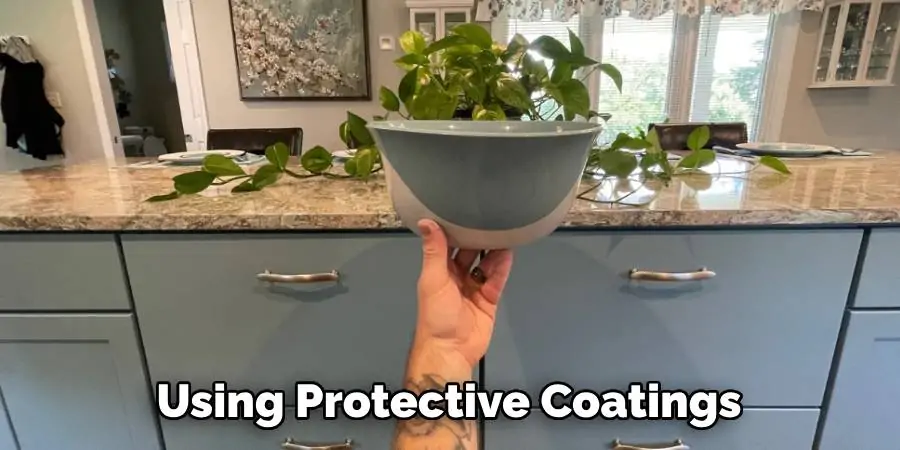
Frequently Asked Questions
How Do I Protect My Kitchen Cabinets From Cooking Grease?
Cooking grease can be a stubborn and unsightly problem for kitchen cabinets, but there are several effective ways to protect them from this common issue. One simple solution is to install a backsplash behind your stove, which will catch any splatters before they reach your cabinets. Another option is to apply a clear, protective coating to your cabinets, such as a polyurethane or varnish, which will create a barrier against grease and make them easier to clean.
You can also use a degreaser or all-purpose cleaner to remove any grease buildup on your cabinets regularly. Additionally, always use a splatter screen when cooking with oil or grease to minimize the amount of splatter that reaches your cabinets. By taking these proactive measures, you can keep your kitchen cabinets looking clean and grease-free for years to come.
What Can I Put on Top of Kitchen Cabinets to Stop Grease?
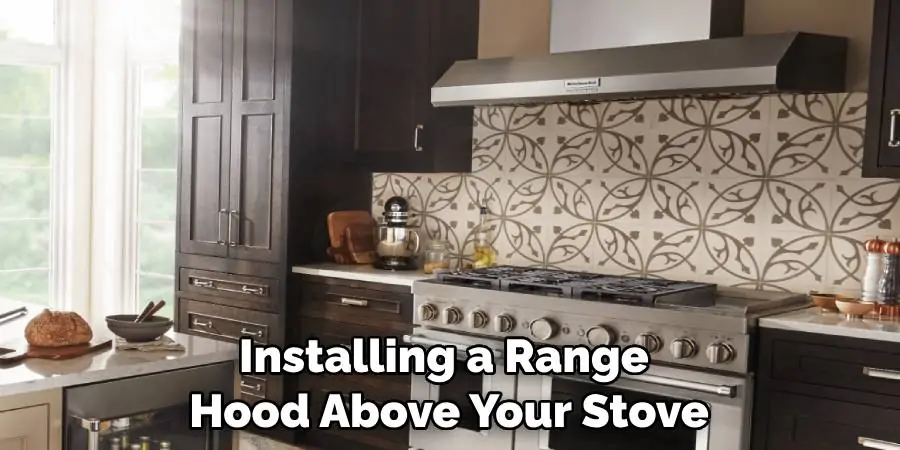
Installing a range hood above your stove is one of the best ways to stop grease from accumulating on top of your kitchen cabinets. The hood will effectively extract cooking fumes, steam, and oils from the air before they can settle on your cabinets. You can also use a splatter screen when cooking with oil or grease to prevent any splatters from reaching the surfaces above your cabinets.
Another option is to place decorations or baskets on top of your cabinets, which will prevent grease from settling directly on the surface. However, these items will need to be cleaned regularly to avoid trapping any grease underneath them. Overall, a combination of these solutions can effectively stop grease from building up on top of your kitchen cabinets.
What is the Best Way to Protect Kitchen Cabinets?
The best way to protect your kitchen cabinets is to establish a regular cleaning routine and take preventative measures to minimize damage. This includes regularly wiping down your cabinets with a mild detergent or natural cleaner, using protective coatings, installing range hoods and splatter screens, and avoiding harsh chemicals. Additionally, keeping your kitchen well-ventilated can also help prevent grease buildup on your cabinets. With proper care and maintenance, your kitchen cabinets can stay looking new for years to come. So make it a priority to protect them from grease and other damaging elements!
Conclusion
In this document, we discussed the importance of how to protect kitchen cabinets from grease buildup and shared some practical tips for doing so. Whether it’s wiping down your cabinets after cooking, regularly cleaning and maintaining them, or installing protective measures like range hoods and splatter screens, these simple steps can go a long way in preserving the beauty and lifespan of your cabinets. By making these practices part of your regular cleaning routine, you can keep your kitchen cabinets looking clean and grease-free for years to come. So be proactive in protecting your cabinets and enjoy a beautiful and functional kitchen!
